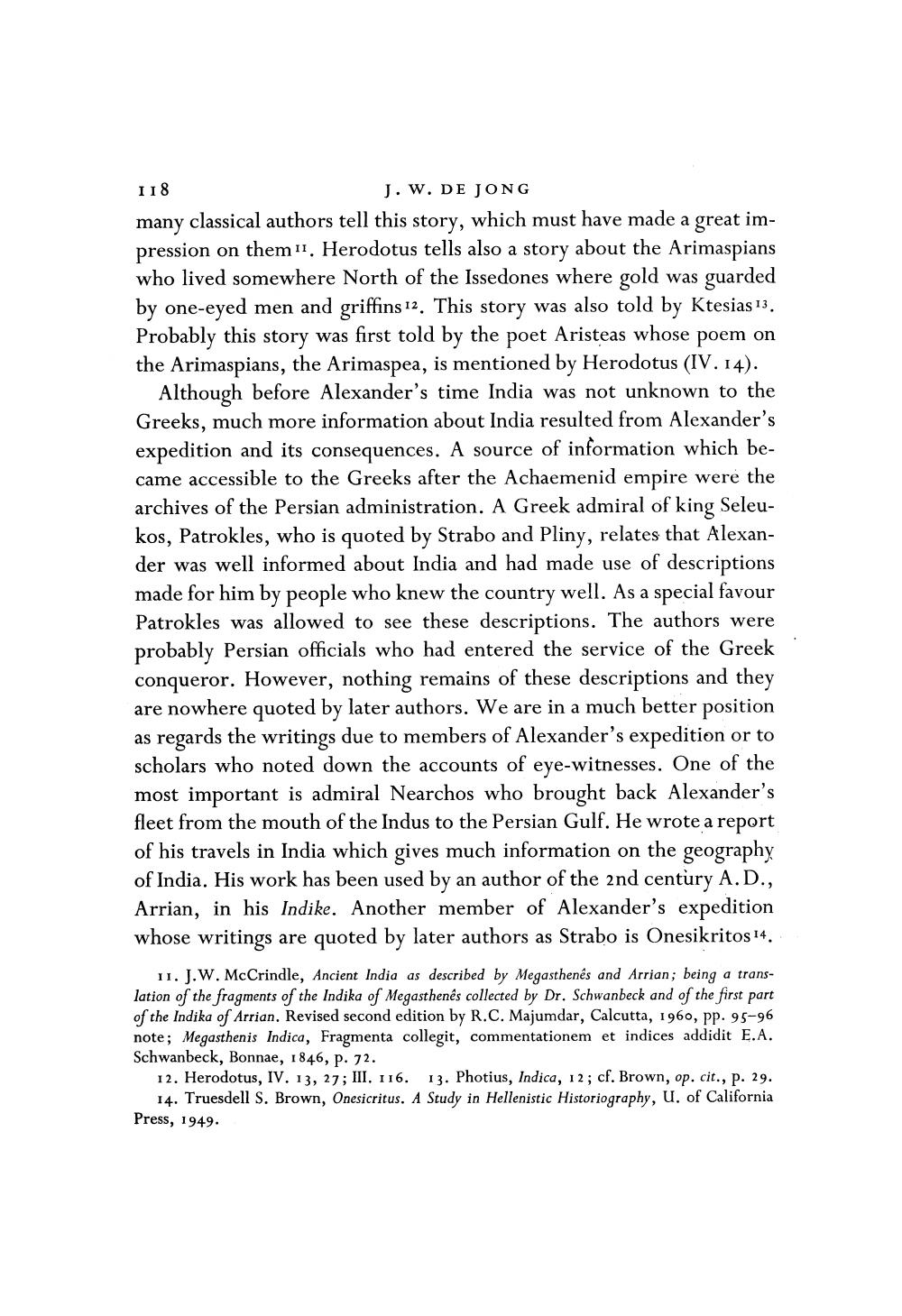Book Title: Discovery Of India By Greeks Author(s): J W De Jong Publisher: J W De Jong View full book textPage 4
________________ I 18 J. W. DE JONG many classical authors tell this story, which must have made a great impression on them in. Herodotus tells also a story about the Arimaspians who lived somewhere North of the Issedones where gold was guarded by one-eyed men and griffins 12. This story was also told by Ktesias 13. Probably this story was first told by the poet Aristeas whose poem on the Arimaspians, the Arimaspea, is mentioned by Herodotus (IV. 14). Although before Alexander's time India was not unknown to the Greeks, much more information about India resulted from Alexander's expedition and its consequences. A source of information which became accessible to the Greeks after the Achaemenid empire were the archives of the Persian administration. A Greek admiral of king Seleukos, Patrokles, who is quoted by Strabo and Pliny, relates that Alexander was well informed about India and had made use of descriptions made for him by people who knew the country well. As a special favour Patrokles was allowed to see these descriptions. The authors were probably Persian officials who had entered the service of the Greek conqueror. However, nothing remains of these descriptions and they are nowhere quoted by later authors. We are in a much better position as regards the writings due to members of Alexander's expedition or to scholars who noted down the accounts of eye-witnesses. One of the most important is admiral Nearchos who brought back Alexander's fleet from the mouth of the Indus to the Persian Gulf. He wrote a report of his travels in India which gives much information on the geography of India. His work has been used by an author of the 2nd century A.D., Arrian, in his Indike. Another member of Alexander's expedition whose writings are quoted by later authors as Strabo is Onesikritos 14. 11. J.W. McCrindle, Ancient India as described by Megasthenes and Arrian; being a translation of the fragments of the Indika of Megasthenes collected by Dr. Schwanbeck and of the first part of the Indika of Arrian. Revised second edition by R.C. Majumdar, Calcutta, 1960, pp. 95-96 note; Megasthenis Indica, Fragmenta collegit, commentationem et indices addidit E.A. Schwanbeck, Bonnae, 1846, p. 72. 12. Herodotus, IV. 13, 27; III. 116. 13. Photius, Indica, 12; cf. Brown, op. cit., p. 29. 14. Truesdell S. Brown, Onesicritus. A Study in Hellenistic Historiography, U. of California Press, 1949.Page Navigation
1 2 3 4 5 6 7 8 9 10 11 12 13 14 15 16 17 18 19 20 21 22 23 24 25 26 27 28
